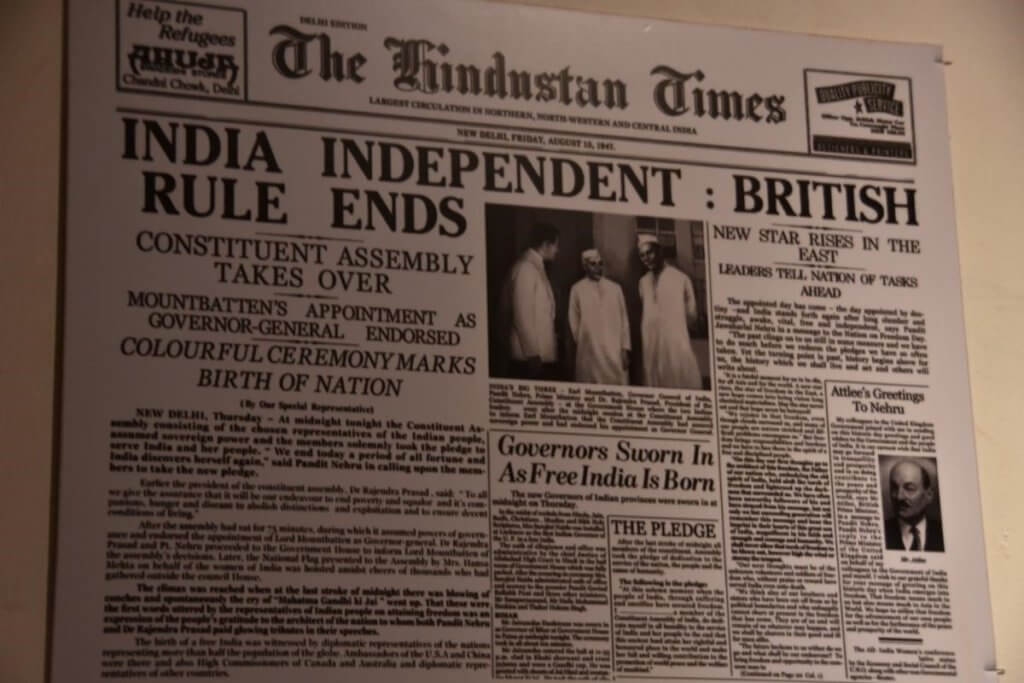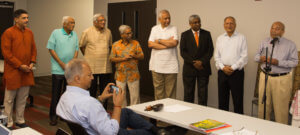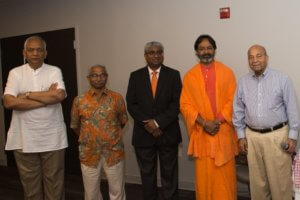
Jammu & Kashmir and Texas: A Tale of Two States : By Kalyan Viswanathan
August 15th is a special day for many reasons – the foremost being it is India’s Independence Day. Here is a British Academic’s view of the economic impact of British colonization of India.
August 15th is also the occasion to remember the birthday of two special men of India: Sri Aurobindo, the great Yogi, and Rishi of modern India, and Swami Dayananda Saraswati, the founder Acharya of Arsha Vidya Gurukulam, and the convener of the Hindu Dharma Acharya Sabha.
This year 2019 is special since it marks the full integration of Jammu & Kashmir with India. It has always been a peculiar law that Kashmiris could buy land anywhere in India, but Indians could not buy land in Kashmir. This claim of a “specialness” has now been abrogated. The people of Jammu & Kashmir are now just as equal as all other Indians under the Indian constitution. All those who protest this equality and claim that the loss of “specialness” is undemocratic and an act of aggression on the part of India have to come to terms with this new reality.
Just as Texas belonged to Spain from 1690 to 1821, became part of Mexico from 1821 to 1836, transformed into an independent republic of Texas between 1836 to 1845 and was annexed into the United States of America, by an act of Congress in 1845 – Jammu & Kashmir has had a tortuous history, with several possible outcomes. It could have become fully part of India in 1947, had Maharaja Hari Singh not dithered and entertained the idea of an independent state.
It could have become fully part of Pakistan, if the Maharaja had not acceded hastily to India, and if the Pakistani army had fully overrun the state and annexed it by force, while a weak Indian state looked on. Alternately, had Jammu & Kashmir possessed the military ability to defend itself, it could have pushed the Pakistani rebels (a proxy for its army) back and remained independent. But small states are by definition vulnerable, and it had to be integrated with either India or Pakistan or shared between the two in some satisfactory or unsatisfactory manner.
Now that Article 370 has been scrapped, through an act of Parliament and ratified by a Presidential Constitutional Order, it is likely that the people of Jammu and Ladakh will happily integrate with India while the people of Kashmir, majority Muslim, will protest and fight the loss of their specialness, which they could control and manage until now.
But let us look back at what happened after the American annexation of Texas. Between 1846 and 1848, Mexico and the United States of America fought the so-called Mexican American war, which was largely fought in Mexican territory. The US fights its wars on other countries’ soil, and in this, they are proactive. President James K. Polk believed it was the nation’s destiny to expand its territory and occupy these lands, either through a financial purchase transaction or through war. After Mexico rebuffed his efforts to acquire territory through a cash transaction, he seized them through war. But others decried the war.
Newspapers warned Americans: “Your Rulers are precipitating you into a fathomless abyss of crime and calamity!” But after a war fought by 78,718 troops and featured 13,283 casualties, Mexico and the US signed the Treaty of Guadalupe Hidalgo, officially titled the Treaty of Peace, Friendship, Limits and Settlement between the United States of America and the Mexican Republic, which ended the Mexican American War (1846–1848). The treaty came into force on July 4, 1848, the American Independence Day, and gave the U.S. ownership of California, New Mexico, Arizona, Nevada, Utah, and Colorado.
Mexicans living in those annexed areas had the choice of relocating to within Mexico’s new boundaries or receiving American citizenship with full civil rights. Subsequently, the US began settling Texas with numerous Europeans and Black Slaves, (Texas retained Slave owning rights as part of its State constitution) and began to alter the demographics of the State in favor of a White majority. But history is coming full circle now and Texas is once again trending Hispanic and Latino and is set to become a Hispanic majority very soon i.e. in the 2020s.
India must steel itself and remain resolved to face any number of counter-attacks now, from stateless Jihadi forces. India is unlikely to emulate the United States, and will probably exhibit its legendary restraint and not do anything that a James Polk might have done. This softness of the Hindu Government in India which allows it to entertain the prospect of a return to peace and normalcy in Kashmir remains its principal Achilles heel when it comes to territory and security, all the while being accused of being hardline Hindutva, by the international media.
In ending this article, let us remember the clear voice of Sri Aurobindo:
“You can live amicably with a religion whose principle is toleration. But how is it possible to live peacefully with a religion whose principle is “I will not tolerate you”?
Sri Aurobindo
Beyond all the rhetoric of Prosperity or Development or its lack thereof, it is this claim of specialness, and separateness – that lies behind the State of Pakistan, the imbroglio in Kashmir, the condition of the Kashmiri Pandits and everywhere in the world, where Non-Muslims have become beholden to an increasingly Muslim majority population. This is what allows the differential treatment of Muslims and Non-Muslims in the entire Islamic world.
One brazen example is the special claims and rights of the Bhumi Putras (A Hindu Sanskrit word) of Malaysia, who are defined as Malays first and who are in turn defined exclusively as those who profess the religion of Islam in Article 160 of the Malaysian constitution. But saying this is politically incorrect today and will incur the accusation of Islamophobia. This is a condition that the world has not learned to deal with yet – How do we extend the principle of equality before the law to a people who will not reciprocate and extend the same back to us?
Author- Kalyan Viswanathan











